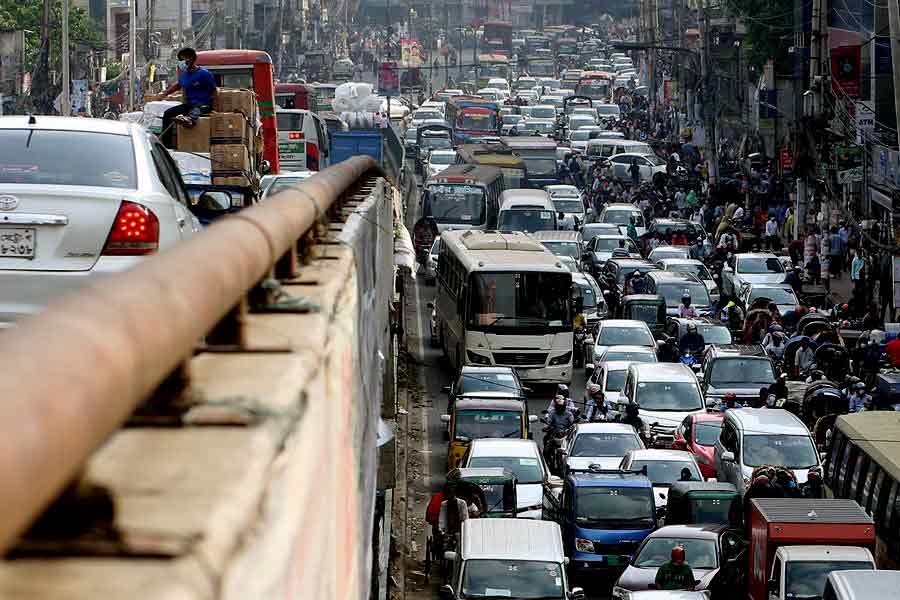The unliveable city has started living up to its rating from the very first day of Ramadan. With every passing year, Dhaka traffic goes from bad to worse particularly in this month because of people's rush to attend duties as well as return home before the time of breaking the day's fasting ---and all this within a tight schedule of shortened office timing. The last two years were, however, an exception with coronavirus disrupting normal life everywhere. Now that the pathogen has made its retreat nearly complete from this country, the gridlock on the city streets seems to have staged a comeback with a vengeance. To make the matter even worse, gas supply to city's households got severely disrupted right from the beginning of Ramadan. To unsuspecting inhabitants of the capital, it came as a double whammy. Together these two problems had also their attendant ills for the haggard people to deal with.
So far as gas supply is concerned, an injudicious act has reportedly been responsible for the fracas. No, the gas reserve at Bibiyana in Sylhet has not depleted, rather overenthusiasm led to technical glitches, according to reports. An attempt to extract more gas brought sands along with gas into the supply system, forcing shutdown of two process trains. On Tuesday one of the two process trains resumed gas production leading to slight improvement in gas supply. This is certainly a wake-up call. In fact, the country should have been more discreet in its use of natural gas. It can only rue over its misuse of gas. Had the card system been introduced in the early years when a false impression was given about what the authorities claimed 'limitless gas reserve', the crisis would not have been so severe now. Also the wrong choice of a foreign company was responsible for disastrous fires at gas fields, which not only burnt up unknown quantity of gas but also led to abandonment of some wells.
So this year's Ramadan began for people, particularly those belonging to the low-income bracket in the city, with more ordeals than they could anticipate. Atrocious inflation has already eroded their purchasing capacity and the trial and tribulations during commuting and extra expenditure on alternatives to gas for cooking have simply left them exasperated. Its ripple effects are also felt by people of the privileged segments and the economy at large. When movement on the administrative and financial hub comes to a standstill, this is certain to adversely impact production and bleed the economy.
The setbacks suffered on account of gas crisis and tailbacks leave a lesson for the country if it cares to take note of the situation. The existing gas reserve is depleting fast and it should prompt offshore exploration in order to extract from the likely reserves beneath the seabed before the onshore gas fields dry up. Equally important is to go for decentralisation and dispersal of administration and financial activities instead of investing in mega projects in the capital city. The objective ought to be to encourage suitable entrepreneurship and employment generation all across the country, which most likely will eliminate the compulsion of migration to Dhaka, Chattogram and a handful of urban centres.


